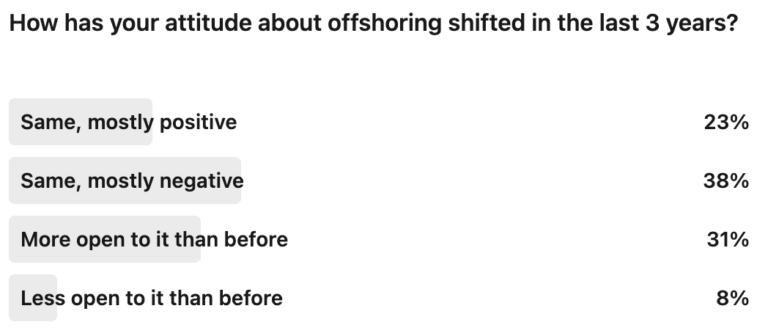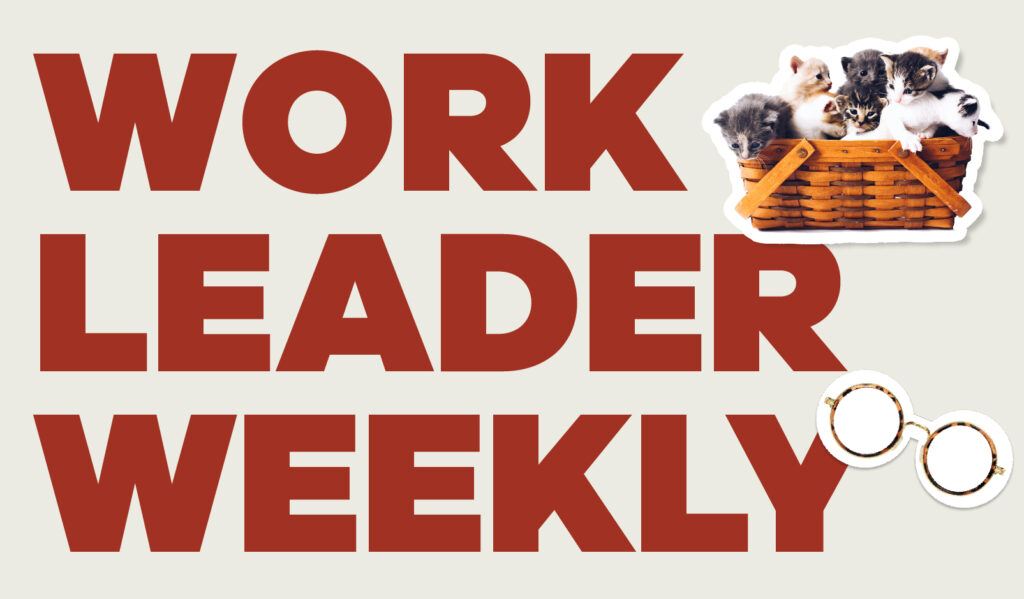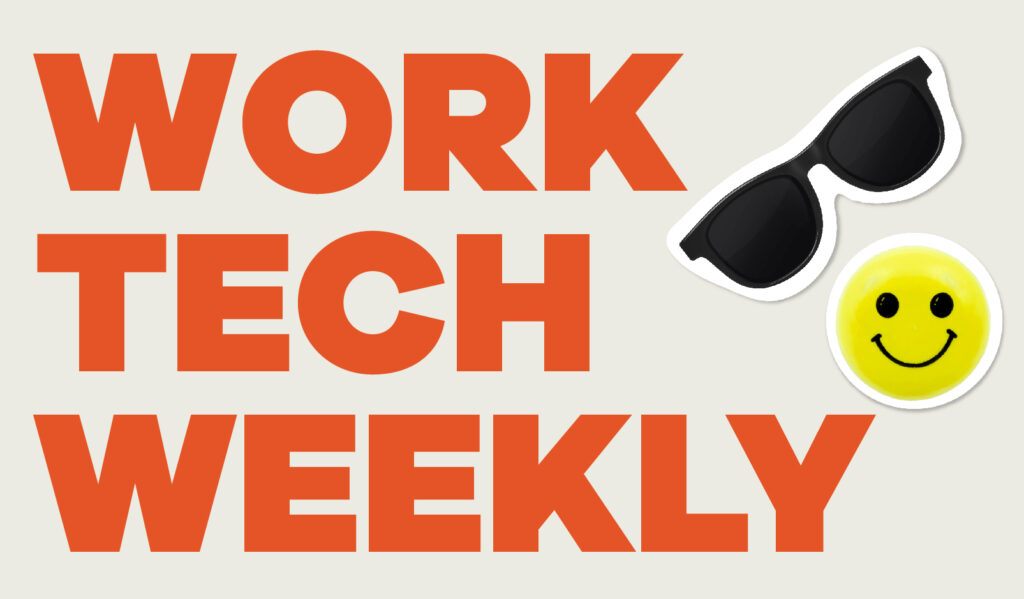Hello.
Yes, we’re going to keep writing about AI until it starts writing about itself. Also in this week’s newsletter, we’re covering the impact of work tech on wellbeing, why workers are still job hunting, and how companies are increasingly hiring retirees (I guess it beats child labor).
Let’s jump into it.
The Mirror of AI
How secure are you in your career? Are you sure that the things you’re doing today will be relevant to the future of your profession?
A few years ago, almost anyone could feel secure about the speed of innovation in their role. Certainly, innovations were coming but we were talking about generational leaps. The march of technology is persistent but not fast, at least as far as day-to-day tracking is concerned.
But, GPT models have evolved rapidly and threaten a variety of roles. How fast? This post gives a good overview of how quickly things have changed, but if you read this six months from now, it’s likely to be antiquated.
Both work leaders and workers in industries as varied as the entertainment sector are grappling with the consequences of what this rapid evolution means. While it was easy to be dismissive of the natural limitations and errors of large language models, with the launch of GPT-3, it was easy to pick out generated text. Now? It’s much more difficult without a tool like ZeroGPT.
Through all the hype, it’s important to center on a couple of issues for any work leader.
- AI isn’t going away. Even if AI developers agree to a pause to work out the moral and ethical issues of AI, a pause is just a pause.
- Nobody, and I mean nobody, wants to be managed by AI. These tools can be a powerful resource for your career but there needs to be some level of self-determination here.
- AI deserves a place at work. Its superhuman capabilities in the work context, like discovering insights from large sets of data, are more useful than scary.
- AI can’t consume itself without degradation. “Multiplicity” comedically took on the issue that eventually copies of copies don’t work. GPT can’t consume GPT-generated content and expect to get better. Humans are still a valuable part of this equation, at least for now.
It’s also worth taking all of these innovations into perspective.
In a well-known episode of the U.S. version of The Office, the top salesperson in the company (Dwight) vows to beat the newly launched e-commerce website when executive leadership promised that by the end of the day, it would be the leading source of sales for the company. While Dwight fought and won that day, he wasn’t able to sustain it over the long term. Of course he couldn’t.
Why does that matter? Fighting innovation point-by-point is a losing battle that no one can sustain. In some instances, AI is already a better writer than me, especially when it comes to fidelity, consistency, and speed. It may not be long before it’s better — both in its structure and fidelity — than me in almost every instance (and for some harsher critics, it might already be there). It will always be able to produce more words at a much cheaper rate.
But people’s expectations don’t change that quickly and that includes what they expect from work. Do people want to read an AI-generated newsletter? Do they want to get AI-generated answers to their HR questions? Do they want to go to an AI therapist? Do they want an AI manager? Do they want to consume AI-generated art?
In some cases, these seem like they could be okay. In other cases, it’s going to be a long time before I trust a robot to help navigate mental health challenges. But instead of fighting inevitability, we should be building new tracks of work for ourselves leveraging these emergent tools or working on the next phase of our careers if we don’t want to cooperate with the machines. That puts more pressure on work leaders to co-develop these paths.

Weekly LinkedIn poll result
 Given the SHRM CEO’s comments on offshoring, we asked work leaders if their thoughts on offshoring had changed. A little over 60% of folks said they held very similar views while just under 40% said it had changed. What’s interesting is that the shift overwhelmingly skews positive.
Given the SHRM CEO’s comments on offshoring, we asked work leaders if their thoughts on offshoring had changed. A little over 60% of folks said they held very similar views while just under 40% said it had changed. What’s interesting is that the shift overwhelmingly skews positive.
My hypothesis is that the pandemic had shifted viewpoints more than any other event could have and that it made people re-evaluate their views on offshoring, perhaps having a more nuanced view of how organizations could make the best use of global talent. What do you think?

Quick hits from around the web
What else is happening?
- U.S. office vacancy rate hits all-time high. Hybrid and remote work push us past The Great Recession highs with no dip back down in sight. (Axios)
- 5 facts about the Pump for Nursing Mothers Act. The PUMP Act goes into effect later this month. If you need a refresher, this is one of the better ones. (Center for American Progress)
- Despite recession fears, workers are still job hunting. Nobody should be surprised, especially with continued low unemployment. (Fortune)
- Translating employee experience into enhanced brand value. Continuing the long conversation of EX translating into CX and value for the organization. (SHRM)
- When the CEO ruins the employment relationship. What can work leaders do when the CEO isn’t helping create a positive EX? (Forbes)
- Embrace the new definition of employee benefits. Employee benefits go beyond traditional insurance offerings, and benefits leaders need to take charge of the conversation. (EBN)
- The impact of work tech on our mental wellbeing. Work technology can drain employees like consumer technology can drain individuals. (HR Grapevine)
- How does an HR tech startup become a unicorn? An interesting look at what it takes to be worth a billion for both solution providers and buyers. (Unleash)
- How hiring back retirees can fill the talent gap. Talent shortages have companies broadening their consideration pool, and with retirees, it might be for the better. (HR Dive)
- Report: Women’s wellbeing suffers more than men’s in a hybrid work world. No shock that while hybrid can still be positive for women, they don’t have it as good as men. (Investment Monitor)
- How Julie Su’s successes and setbacks in California shape her contentious nomination for labor secretary. The labor secretary is under enormous scrutiny thanks to increased union organization activity and, of course, her time spent in California. (Daily Democrat)
- The rise of non-disclosure and restrictive covenant clauses. There are a few legal implications with the rise of non-disclosure changes in employment agreements. (JD Supra)
- Virtual meetings really are worse, research finds, but there’s a fix. How can virtual meetings be improved? Keep it short and encourage others to interrupt like you would in person. (Reworked)
- The case for not splitting recruiting and HR. One of my most controversial opinions in the TA industry is that splitting TA and HR isn’t just unnecessary, it is actively bad. (ERE)
FFrom the 12 Geniuses Podcast: Turning disruption into opportunity
If you are a leader for long enough, your organization is going to face a crisis. It might be a massive weather event, a war that interrupts your supply chain, a cybersecurity breach, or another type of disruption. How prepared you are and how you respond to that crisis will determine if it’s devastating or an opportunity.
In the latest episode of the 12 Geniuses Podcast, Don MacPherson interviews Dominic Bowen, the head of the international operations desk at Europe’s leading risk management consultancy and host of The International Risk Podcast, about the big disruptions — like tsunamis, hurricanes, and military conflicts — that can interrupt any high-functioning organization and the small disruptions that are blind spots for most companies. They also talk about what leaders should be thinking about in terms of business continuity and how effective crisis management can lead to unplanned opportunities.

That’s it for this week!
Lance




